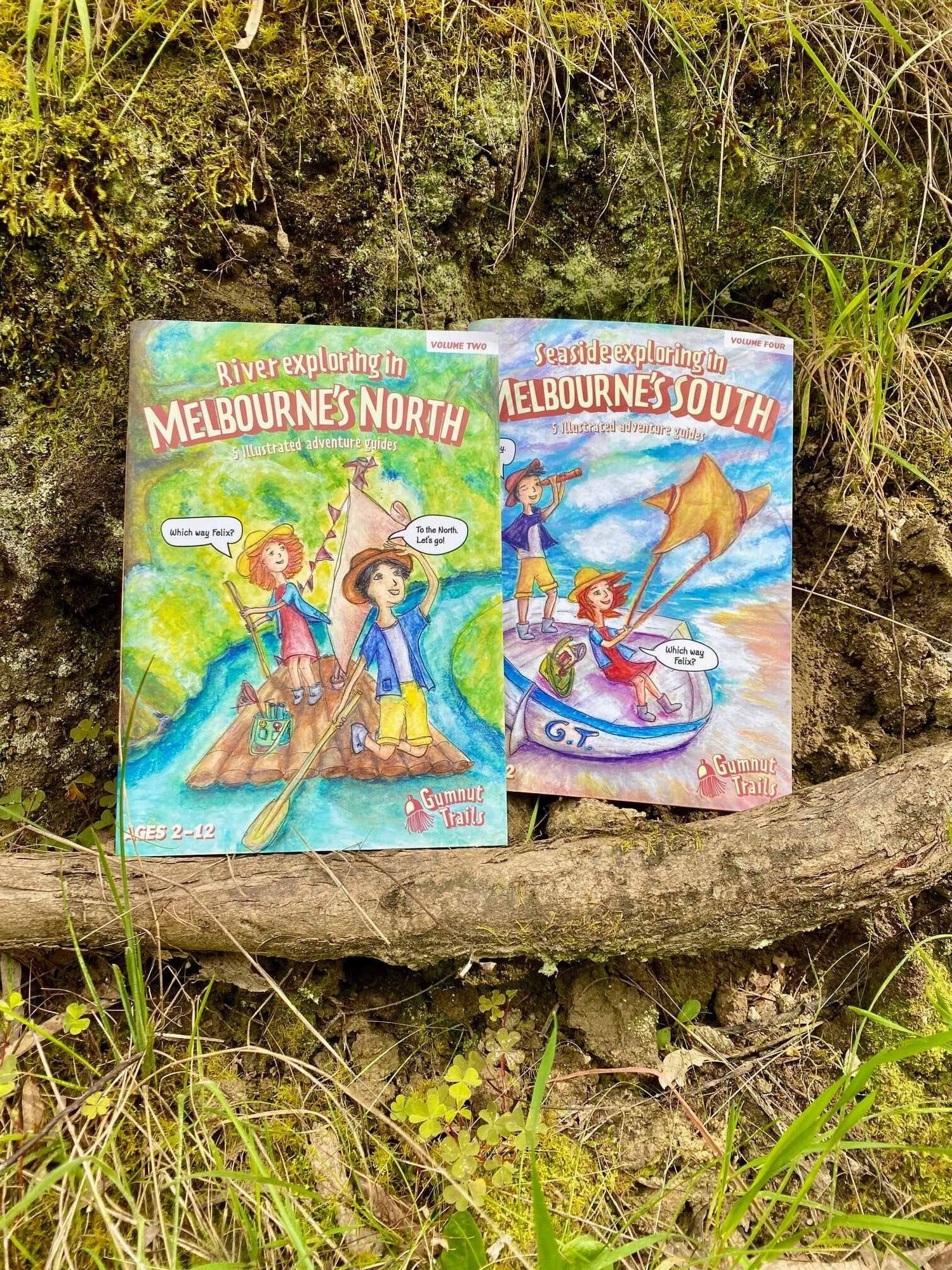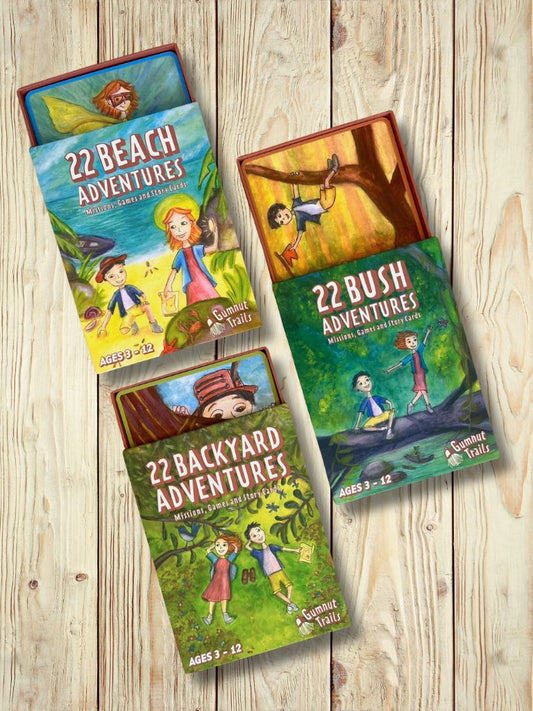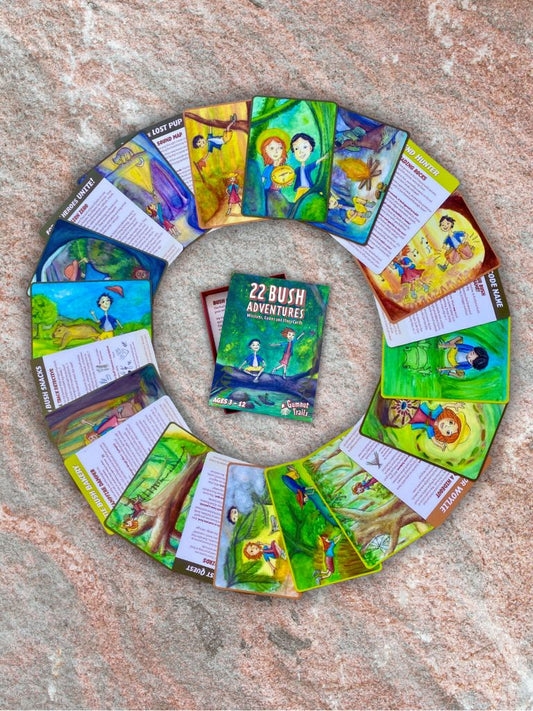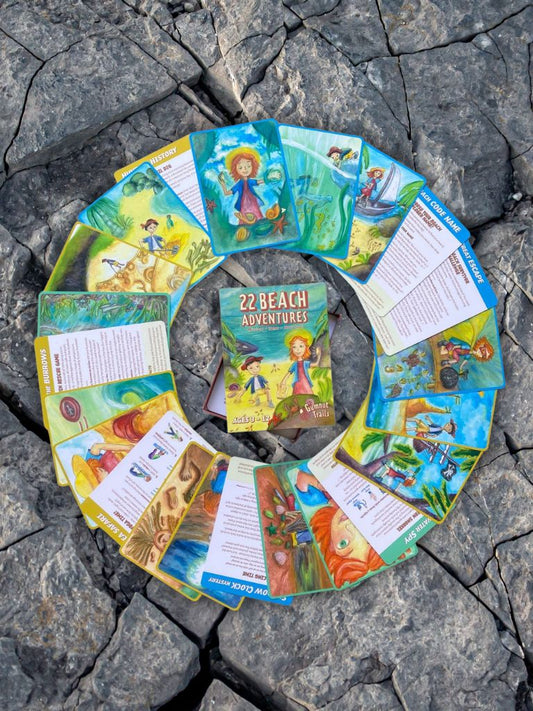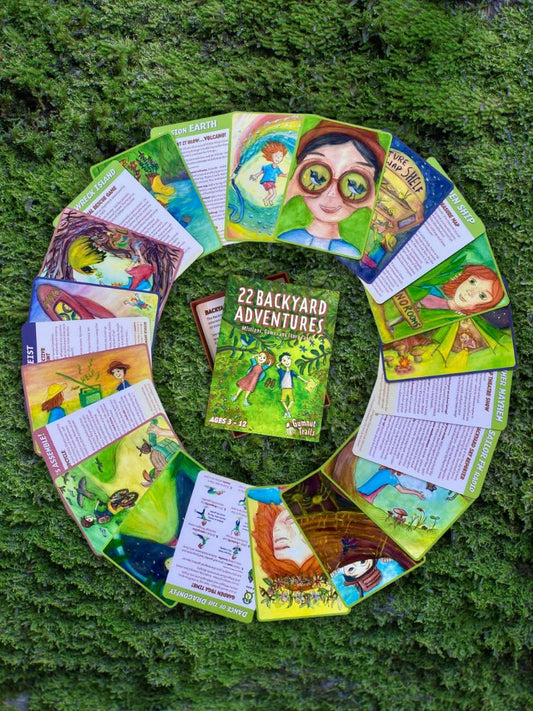The first is a challenge, the second is fun and the third is a dream! Welcome to the classic Aussie adventure - the family camping trip!
Camping holidays have to be one of the BEST family adventures growing up. Think open campfires, making new friends, quality family time and outdoor adventures every day!
But the thought of taking kids on a camping trip can fill parents with dread. What happens if they don’t sleep? What happens if it rains the whole time? What happens if they get REALLY dirty…?
Here are some helpful tips gathered from friends, followers and our own experiences to help make your next trip a success!
Five Minute Read
How to make camping with kids a success.

1: The Dress Rehearsal
Setting up camp for a family can take FOREVER. Your tent is bigger, your car is overflowing with STUFF, and you have impatient kids who just want to run off. Plus, how do you put up your tent again?
"To build the excitement and remove the stress – pitch the tent in your backyard the weekend before."
"You’re sure to have BIG smiles and lots of laughter on your practice run – plus a smoother operation on the day you arrive. If you’re really keen, try sleeping overnight in your backyard as well."
2. Set the tone - It’s an adventure
Camping is fun; however, it can also be scary for kids (and adults) when they haven’t been before. It’s a good idea to explain the process and what to expect, maybe even show them a few pictures or stories to get them excited."Tell them it’s an adventure – we’re going to explore lots of new places during the day and sleep in a tent together at night."
3. Go with other families
The best camping trips are those with friends! The kids are instant friends (often for life) and will play together for hours, giving you plenty of time to just chat and relax.
"Campfire dinners with friends are the best! Cooking in the coals, toasting marshmallows, telling campfire stories and finishing off with some rainbow fire."
4. Give Them Freedom - With ONE Golden Rule
Let’s face it – if you’re staying in a busy campsite, it’s a sensory overload for kids. There are kids EVERYWHERE, you’re sleeping in a very strange ‘room’ and there are so many new experiences and memories to make.
It’s no wonder they often leave your campsite without explanation... It’s time to introduce one golden rule (especially when they’re little) – ‘Tell us where you’re going first.’
"After a few days everyone starts to relax and get into a rhythm. Kids know they can’t just wander off without telling their parents, and parents trust their kids to check in."
5: Relax Your Routines
Get ready to throw the clock out the window and ease into the slow life. The birds wake you up in the morning and camp-life keeps your kids up past normal bedtime.
"Eat when you’re hungry, enjoy being a bit wild (and a bit dirty) and relax – you won’t regret it."
"It was just easier for us to all go to bed at the same time – we went to bed earlier and our kids went to bed later. But they always sleep well - they’re so tired!"
"Be flexible with routines – it’s impossible to follow what you do at home."
6. Get them involved - It’s a family affair
It’s really fun setting up a campsite and living out of a tent! Let them enjoy that experience to the hilt and learn how a great holiday comes together with everyone’s help.
Get them involved in planning the holiday and explain you need their help at camp.
"Get them to hammer in a peg or decide where they will put their bedding inside the tent. They will feel so proud that they helped out."
"The first time we camped we didn’t explain anything to our 3-year-old, and she ran off in excitement - with one of us close behind – leaving one person to set up the tent on their own. The second time we got her involved and it went so smoothly!"

7. Leave the idea of clean behind
Camping can get messy, especially when there are kids or rain involved. So don’t pack your best clothes and have extra layers ready just in case they get really soaked.
8. Keep It simple and screen-free
You don’t need to bring lots of toys, books and games with you (or technology).
Think about what you could do in rainy days inside the tent and have a few surprise activities up your sleeve to keep things interesting.
However, there will be so many areas to explore, new friends to meet, that you can confidently leave the screens and extra toys behind.
9. Make it fun and try something new
Why not plan some adventures? Bring your bikes, go for hikes, swim in the nearby creek or beach, kayak or fish on the lake or go spotlighting at night.
Leave plenty of time to relax at the campsite and let your kids make new friends.
"Sleeping in a tent and toasting marshmallows just blew my kids minds."
10. Decide on your camping style and find a site.
Do you want a campsite with lots of facilities (showers, toilets, kitchens, playgrounds, movie nights) or do you want to camp off-grid with maybe a toilet and a river for a shower?
Do you want to be part of a busy campground and meet other families or enjoy the wilderness in a smaller campsite, on a farm, or a national park or beach?
Here are some websites you can use to find your perfect camping site:
- HIP CAMP - smaller sites in lovely, often private settings (such as a farm)
- Free camping sites in Australia
- List of top camping sites and national parks (Visit Victoria)

11. You can always leave early.
The first-time you camp can be challenging, and it might take a few days to settle into a good rhythm. Or you may be battling endless rainy days and uncomfortable conditions.
"Everyone has their story about the time they just ‘left’ or had to sleep somewhere else. So, if the trip is really not going your way – you can just leave – and try again when you’re ready."
12. Be Rain-Ready
It’s always best to assume it’s going to rain. So have games to do inside the tent in rainy weather, have extra towels ready to mop up the drips and try not to set up your tent where the water collects!
13. Choose your tent location carefully
Where do you pitch your tent? Choose a nice flat grassy area that can offer sun and shade (depending on the time of year). Don’t camp under big old gumtrees that may drop their branches and think about where water might flow if it rains.
In a campground, you might like to be closer to the bathroom or playground with younger kids, or maybe you would prefer to be a bit further away from other tent sites if you’re worried about noise. 
14. Pack lots of snacks and easy meals
Adventures and fresh air make everyone HUNGRY. Have lots of easy snacks with you – fruit, crackers, nuts, sultanas, muesli bars and more.Think of easy stove-top meals you can make using the camp kitchen, BBQs or with your own gear. (Just be aware camp kitchens are often missing pots, pans, plates etc – so best to bring backups).
“If you’re settling in for some campfire cooking – plan for sausages, potatoes, corn and more (in foil) on the coals, finished off with marshmallows 😊”
15. Pack layers - for sleeping and clothing
It can get cold at night, especially when you’re a small child. So, bring extra blankets and clothing layers (even a coat!) to keep everyone warm in the tent overnight and after dark.
“We have a picnic rug under our sleeping gear to help keep it warmer and snuggly at night, as the tent material can get very cold.”
16. Be wowed at how much they learn on the trip.
Camping is an intense experience for everyone and especially for our kids. You will be amazed at how confident they become, how many friends they make, how much they learn and how ready they are to leap into their next stage of development after your camping trip.“Our shy 3-year-old made so many new friends in such a short space of time, she came home ready to tackle the world.”
